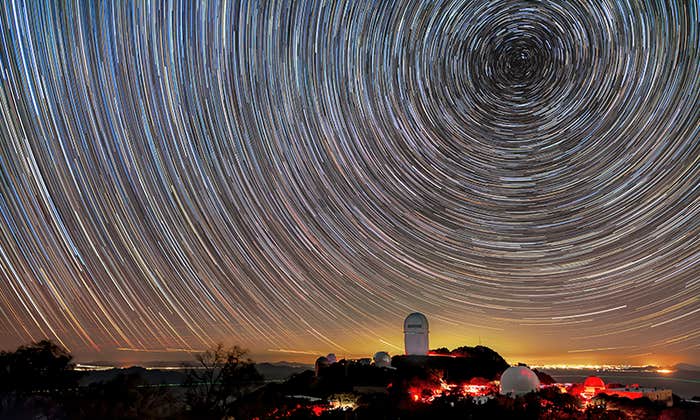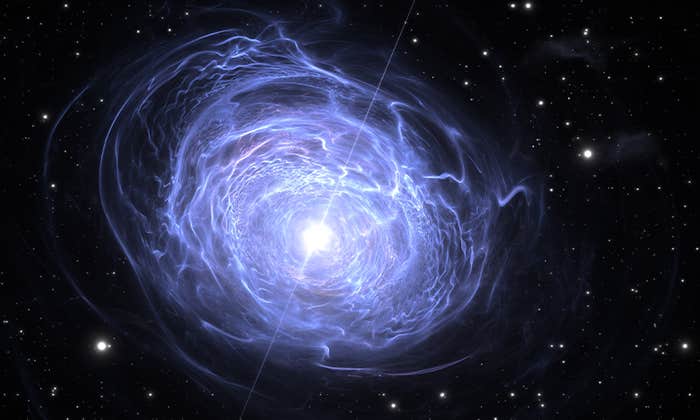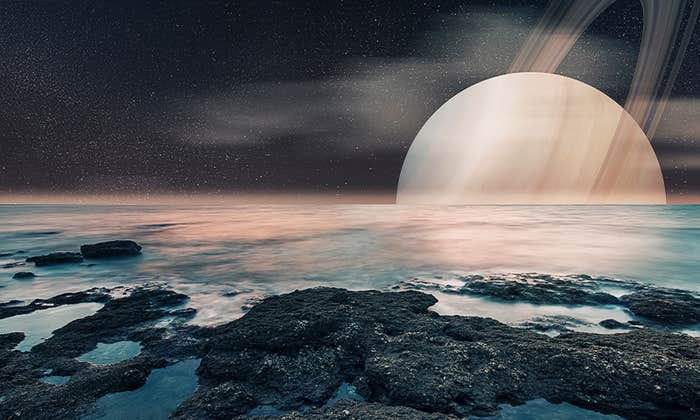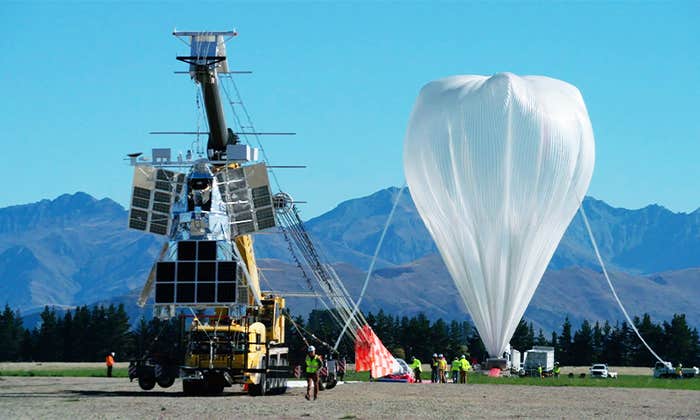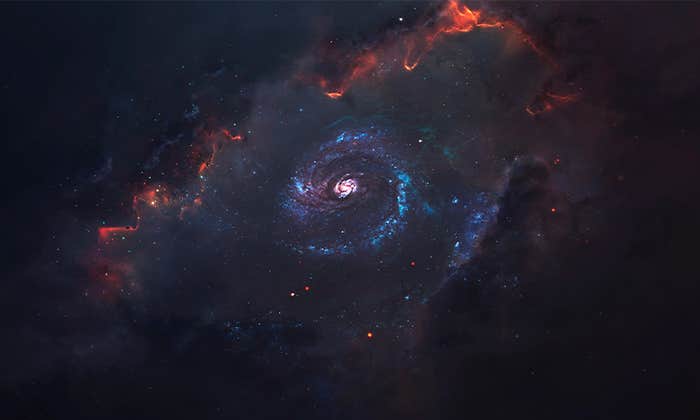I met Claudia de Rham nearly 20 years ago at Perimeter Institute for Theoretical Physics in Waterloo, Canada. I was one of the founding faculty members, working on quantum gravity, trying to figure out how to put gravity and quantum theory together. Claudia arrived as one of our postdocs in theoretical cosmology, also looking at how the universe evolved and its fundamental laws. We didn’t interact much back then, even though we were among the few women at Perimeter. The institute was expanding fast, and everybody was very busy. I always wanted to spend more time with Claudia, because I knew she was not only a physicist but a pilot, a diver, and went all the way to the final stage of the European Space Agency astronaut program.
I left Perimeter and quantum gravity in 2010 and I am now in New York City, while Claudia eventually took up a position at Imperial College London. She is now known for showing that massive gravity works. That’s a modification of gravity where a graviton, the hypothetical particle of gravity, gets a mass, meaning that it propagates in speeds lower than the speed of light. At large distances, this tweak adds up and can explain the accelerated expansion of the universe without resorting to mysteries like dark energy. The problem was that we thought this wasn’t a legit move because it badly violated certain conditions (known as no-go theorems) that made it mathematically inconsistent. Claudia and her collaborators showed that this was a misreading of the constraints, restoring massive gravity as a possible solution for big problems and opening a new arena for others to explore.
Luckily for me, she also wrote a lovely book, The Beauty of Falling: A Life in Pursuit of Gravity, and the world is a small place. I decided to take up the conversation we never had. We sat down for two video interviews and compared notes on working in the world of theoretical physics and how the practice of science is merging intuition and play with abstract concepts and equations.
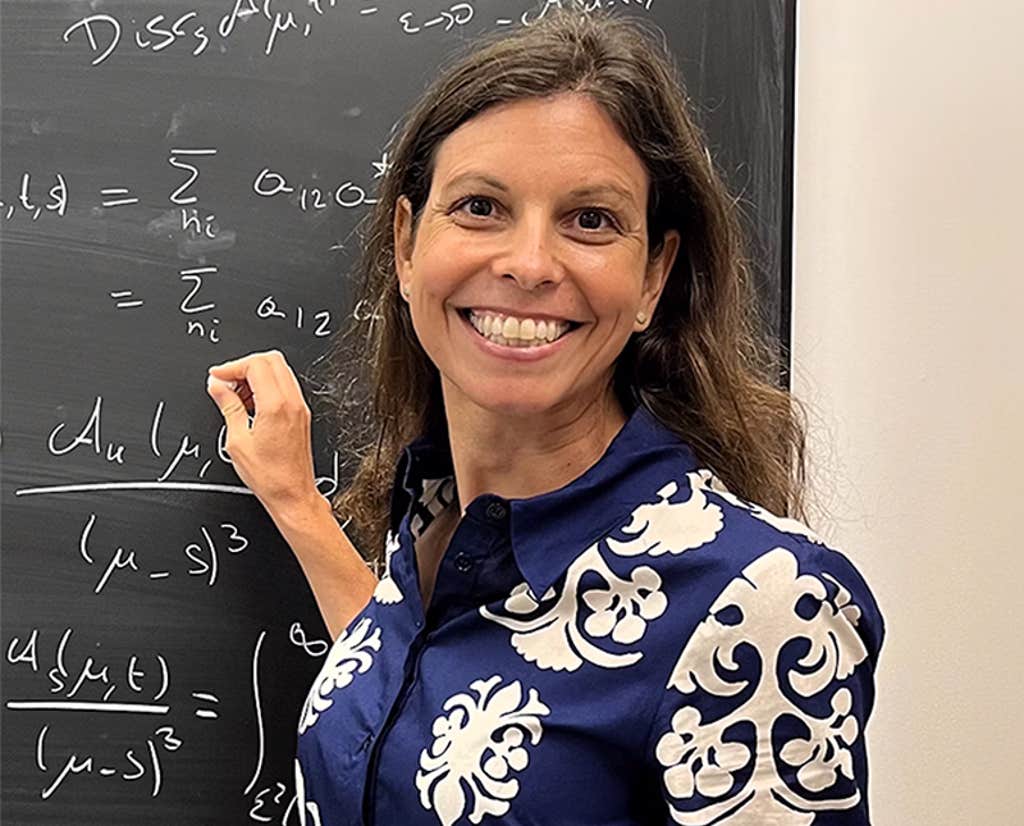
Gravity is unlike any other force because everything feels gravity. That’s beautiful, but it makes gravity hard to handle. Does your work make gravity a bit more normal, like the other forces?
Yes! We have gravity on a pedestal, so perfect it will connect to everything equally. Massive gravity switches some of this off, there is a range where this principle holds, then it’s had enough. It becomes like the other forces. It brings spacetime down to earth too, it’s simply the reference frame for whatever you want to say. There is no notion of pure spacetime just by itself as in general relativity.
That pure spacetime, a universe with no matter, causes much of the trouble in quantum gravity, too. I never understood why we are so committed to this idealization. Why can’t we say that this is not the universe we live in, our world has matter, isn’t it great that matter helps us solve problems? You get much resistance if you advocate for this.
That resistance was very much my experience in my field, too. There is a great aspiration for the most abstract, the most grandiose. The bigger the symmetry group, the better. I saw it as natural as to set up our canvas or set up a box, the real-world context that we work inside. That’s what physics is. We lay our tools on the table and set them up to start the conversation. Without that, it can be disconnected from reality.
You spent a lot of time in no-go theorems. That’s not a place where we hang out much. What was it like?
I am not one of these people who say, “I have this crazy idea that will change the world and I am going to ruin my career pursuing it.” No-go theorems exist for a reason. They tell you that under clear and natural assumptions, certain things cannot happen. The only reason I started looking at them more closely is because we had an example that didn’t fit. That was very confusing. You have a logical proof for how things must happen and an example that doesn’t want to do that. This told us that there must be a way to evade the theorem. Then you spend hours and hours going step by step to identify where your example doesn’t fit the no-go theorem and what is missing in the theorem.
It’s always about perspective: If you follow the theorem linearly, you end up with a certain outcome. It’s only with a little leap that you land elsewhere. Then you understand the physics better and see that the assumptions in the theorem were a bit too strong.
Now that you’ve been there, have others found more ways to open up this space?
Yes. There has been a lot of work motivated by ours. When there is a new level in the game people want to play it, plus you can export these techniques to other higher-spin particles. This is where the real fun is! It is not about massive gravity per se, it is about understanding the underlying structure of reality and opening up the possibilities.
You said that questioning a no-go theorem wasn’t a crusade to change the world, it was just being confused about something. I think that’s how it happens all the time.
People ask, “When you understood how it works, was it a Eureka moment?” It’s the opposite, it’s “I was stupid before.” When you understand it, it is obvious. You don’t even think it’s interesting anymore. You think that everyone will say it’s obvious, let’s move on.
So true! First, it’s “I must be stupid,” then “it’s obvious,” and then “I don’t even have a paper I can write because it’s all obvious.”
I never felt, “Oh wow, I am on top of it now! Now I have something I can give!” I always feel like I was stupid and confused before, and now I understand why I was confused but it doesn’t make me feel special. What is fun is putting the pieces together. The end of the process doesn’t feel like achieving a big milestone.
I’ll ask you a question I hate when others ask me: How do the different strands of your life relate?
Can we take a moment to make fun of the standard question: “Is it frustrating to have so many questions and so few answers?” Which is like asking if I mind that every time I eat a chocolate, two new ones take its place.
It is a misunderstanding of why we do what we do and how we do it. It’s how scientists are portrayed, all about being right, about knowing something. It’s the opposite, it’s about not knowing something and finding out that’s fun. Maybe people should try it and see how it feels.
In case anyone gets the wrong impression from the ease with which you describe being confused, you are a pilot and a diver and made it to the final stage of the astronaut selection process of the European Space Agency. I remember how dead set on it you were when we were both at Perimeter. Your book tells how your astronaut dreams were dashed when the ESA found traces of latent tuberculosis. Then the chapter ends. You tell us you received the message with the news, then nothing.
There is nothing. I read it as I was boarding a flight to Canada. I went through all the denial and negotiation stages on that flight. By the time I landed it was “OK, this is it now.” The flight was the transition. That the rejection was due to medical, not psychological, reasons was helpful. The TB wasn’t within my control. I just had to move on.
The build up to the rejection note was very intense, it was a painful and intrusive week. I was the only woman in our astronaut cohort and there were so many intrusive tests I had to do because I am a woman. I can imagine analogous tests for men that are also intrusive but, somehow, they didn’t think of doing such tests for men. As long as there is potential, you tell yourself you can get through this and after it it will be fine. And now there was a clear transition. It wasn’t a “welcome to the rest of my life.” I literally landed in a different place. It was quick in that sense, not like in academia where you apply for positions and are left waiting for six months.
I’ll ask you a question I hate when others ask me: How do the different strands of your life relate? What’s the connection between wanting to be an astronaut and being a physicist?
There was never any doubt in my mind that it is all curiosity-driven, setting yourself up in an environment to probe nature. As a kid, you see it more clearly, you dive into your environment with your whole body because you want to probe it. As you grow wiser, it becomes a more mental exploration, asking ourselves questions as opposed to going somewhere physically. The astronaut is part of the exploration and physics is the same thing: curiosity-driven.
It’s not that I wasn’t curious about other things. My Ph.D. was a terrible time, and I thought there was no way I was going to continue in theoretical physics. Maybe biophysics or other types of exploration. To my mind, these are not very different. It is still driven by curiosity. I feel very fortunate that I like doing these calculations and I can do it for a living. I find it very peaceful, meditative. It is a structure, you can follow things through, and they will tell you something, a story about themselves. There is creativity, but it comes in by itself as you look at those things in different ways. I would have loved to be an artist, but I am rubbish at it. This is the best artistic thing I can do.
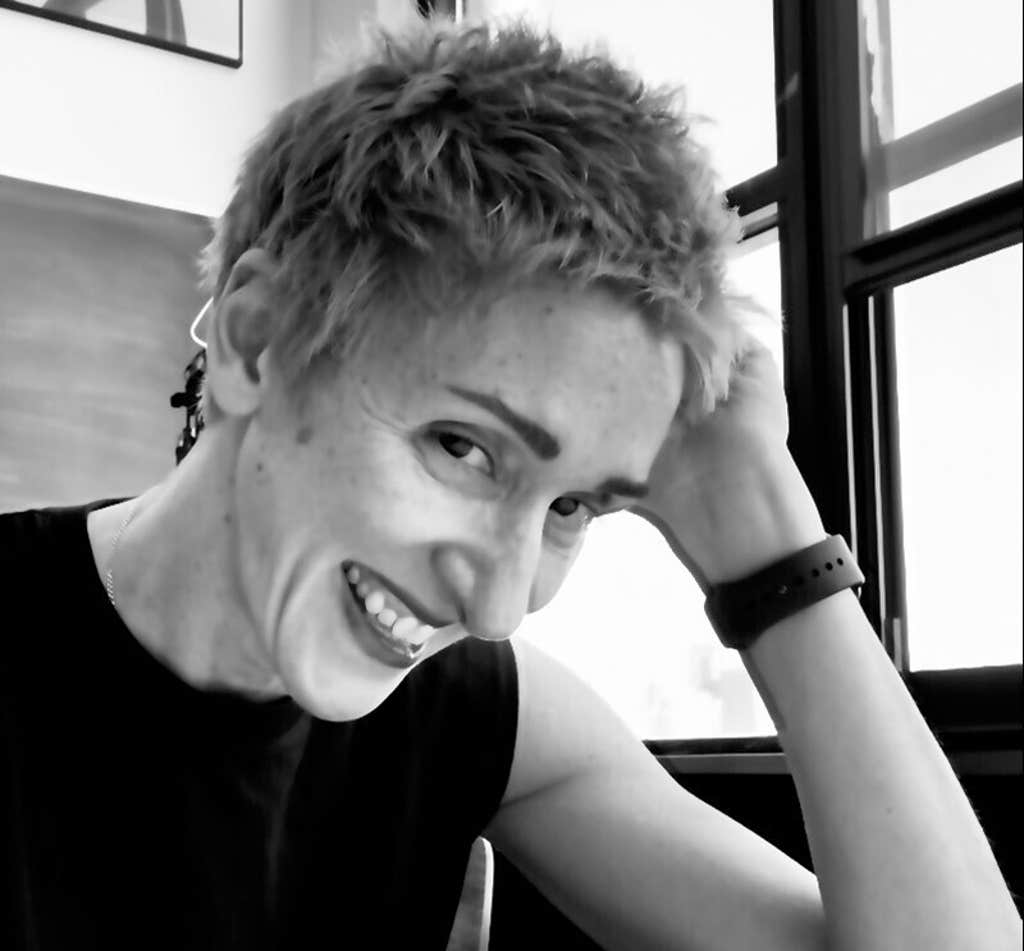
What does curiosity feel like to you?
It is very playful, very candid. It can seem that when something doesn’t work it is very frustrating and we get away from that, we don’t like it. Curiosity is the opposite, it’s the embracing. You see something that doesn’t work, doesn’t match your preconceptions, and rather than being scared by it, you see it as a light that you are drawn to. You do not know where it will lead you and it is different from what you are used to, but there is the appeal of something that doesn’t quite fit. That’s what I would say curiosity feels like.
It is playful though, because it is teasing you. It pushes you out of your comfort zone. You have to make fun of yourself, accept you will not have control and try to play with this unknown, try to make progress together.
You often write that gravity is playful, playing, and also that we, scientists, are playing. Science is often labeled as “useful” or “true” and play is the opposite of utility. Do I understand correctly that by play you mean engaging, opening your eyes, that this is the way to find new things?
Exactly. Play allows you to explore, and then you find something that you would have never thought is possible.
You write about how gravity tastes or feels. We spend so much time with gravity that we do taste it, feel it, play with it. You also write about flying planes, that as a pilot you put your feelings aside and use logic but you don’t fly with just logic. You feel the plane, right?
There is a lot of instinct in both. You learn to build your intuition because you have to rely on that intuition. You learn how to fly the plane logically but it has to become second nature. You have to absorb it, to adopt it so completely that in an emergency, when everything is going crazy, your intuition will drive you to the right direction. We have natural survival instincts to start with, but building harmony between them and the plane is a process you have to go through. It’s the same in physics. It has to become second nature, and it is building on your own nature, you bring your own creativity into it.
The plane becomes an extension of your body, and it works similarly with abstract stuff too, no? A category theory diagram on my blackboard is just as viscerally real to me as the vibration of the drill I use when I build stuff.
Absolutely. It’s like people who play chess and don’t need the chessboard to be there, or even the opponent. It takes a life of its own. I do feel like that, especially for massive gravity. It is like a friend. It is very fragile and it will disappear at some point and that’s fine. It has its flows. You know this from the beginning and you try, like for a friend, to understand it, to learn from it, let it develop a little bit and see how much you both can get out of that. It’s “OK, you are sick here, how can I help you? How can I move you forward in a direction that would be helpful?” And at some point you have to let it go. But it does provide you with feelings. These are not just words, not just analogies. They are part of the story, it is how you see the system.
It’s so interesting because how gravity feels to you is not the same as how it feels to me.
I think most physicists work this way, but talking about it is tricky. I wonder if some of the diversity issues in our field, especially with women, hinge on this. When my Ph.D supervisor talked like that, he was seen as a wise elder, but a woman will be labeled “intuitive” in a derogatory way. It can be depleting if you have to watch what you say.
I know exactly what you mean. Can you allow yourself to show more of how you really do science? That it’s not just a hard logical process but it’s also feeling your way and having human stories for it? Some people are allowed to, depending on others’ preconceptions, others risk being taken less seriously if they show this. This has a cost, how much of yourself is in the message and how it’s valued or devalued really matters.
Which is a loss because science relies on sharing what you’ve seen in your travels, and you are redacting part of the story.
And also because there is a history there, and we’ve been channeled to think in a particular way, in terms of what fits the format of a paper. If someone allows themselves to go outside of that accepted routine and bring in some different values, they are unlikely to be perceived well. I can tell you, I had much feedback on the book of, “Why should we care about your experience, it has nothing to do with the science, why should anyone be bothered with that?” But I am not a physicist 9 to 5, following the rules imposed by the fathers of whatever, and after hours I will be a wife and a mother. Every single symbol has a character in my mind, and they play together and make a story. It would have been impossible to write a real book that said what I wanted to say without that human part. But I can see that it triggers the “Why do you allow yourself to do that?” response.
That’s the belief that science is descriptive, not normative. Ideally disembodied. The Lord speaks through you, so the more disembodied the better.
I’d start with the normative side of things. Being part of it. If you put yourself in it, you can’t help but change things. Maybe that’s the difference with some of my colleagues who feel “this is the truth, these are the equations.” They do not see themselves in them at all.
I don’t get that “here’s the truth.” All theories will eventually be superseded. It’s not rational.
I can’t talk for them but I think there is a beautiful ability—a strength, really—to believe that it will be wrong eventually. For a little while, we can live in the luxury of being shielded from failure, even though we are very aware it will come at some point. There’s no such a thing as “truth.” We simply embrace what makes sense right here, right now, while knowing that at some point we will need to go deeper. But for now, we are protected from needing to worry about the points that will be wrong.
Sigh. Let’s go back to writing papers. This embodied experience of reaching out and touching what you are devoted to studying is hard to share in words. Papers and their strict format are so limiting. A book like yours goes a bit further. It’s so interesting to me because how gravity feels to you is not the same as how it feels to me. It’s not fragile to me, but I know what you mean when you say it has a sense of humor. Hanging out with gravity is like watching Eddie Izzard, the same trippy feeling that the world makes more sense upside down.
It’s important that everyone feels it slightly differently, that’s how everyone gets a slightly different expertise and a slightly different way to see things. We use the same math and the same logic, but the way we make these small leaps and say “if this happens, then it will behave like that,” there is a level of feeling. You feel for the system itself, how it will behave and how you can challenge it.
It’s about not knowing something and finding out that’s fun. People should try it and see how it feels.
Yes, those little leaps, like getting out of the no-go theorem, come from feeling your way, the curiosity. The papers we write do not tell that story.
There is a translation process with many steps between how you relate and connect to your subject at the human, emotional level, and a talk or a paper which is very formal and structured. There are people close to you, usually your long-time collaborators, with whom you can make contact without having every word in the story. Outside that circle much gets lost.
You had a comment about having mixed feelings about words in your early life.
I find it really hard, even now. Words are like a discretization. You have these complex thoughts, and you need to pixelize them and put them in a compartment to fit them to a classification that is not exact. Every time I give a talk, I explain the same thing differently because the words are never quite right. Every attempt is an approximation to what it feels. When you write a paper, people get an impression of what you want to say and it’s also never quite right. You do what you can. It’s when you talk to the author that you start seeing how they made the connections between different things.
The little leaps that feel like confusion, and you can only work out afterward.
We can only make models of what we see. How you decide to describe what you are seeing has a life of its own. When you say it is sick, of course it is not. It’s that gravity feels like a ghost, a representation of nature for a given regime, and that ghost, which isn’t the truth, it isn’t something fully fundamental. It has a way to start, to develop and behave a certain way in some situations. So it has a kind of life. If it’s sick it’s because this isn’t a good way to think about it and you’ll have to discard it for another model. But I don’t think of it necessarily as another model, you actually evolve. Everything evolves.
People like to say, “you have Newton’s theory, and along came Einstein and proved Newton wrong and came up with a new theory, and Newton was wrong.” But it’s not like that. There is so much understanding in all of them. It keeps on taking life and it keeps on taking roots in itself, so the core is still there. You evolve it. We are making a painting of nature, and confronting it against nature, it takes a life of its own. You discover new ways to use the brushes. I imagine it is like that for an artist. It is not that they are projecting an image on the painting, the painting is calling for something. There is a void that needs to be filled.
My parents were both sculptors and I had the most useful conversations with my mum. She would have sculpture in mind, and I had theoretical physics but it’s very similar, creating something that looks right from all angles. It seems impossible, so where does it come from? She had to ingest the situation until her hands made the sculpture. We must lack language because it is not a mystery. It’s like flying a plane and needing to get to the level where it feels part of you. For a plane we understand it, but when it is about physics, it seems a mystery. But it’s the same thing, spend time with it and then your hands will do it.
I completely agree. For me, sculpture would look very much like a mystery. I can’t understand how they come up with what they do, how they can have that vision and realize it. It’s impossible for me to imagine how this would happen. But in physics it is very natural, there is no mystery at all.
If someone was giving out grants to do something that is not work and is not useful, but it gives you joy, what would you pick?
I would still like to go to space! I would love to see the Earth from above. I would love to be in free fall. Observe things, be part of something. Anything else has a finality to it. This is enjoying the moment without thinking it will stop. ![]()
Lead image: nchlsft / Shutterstock























